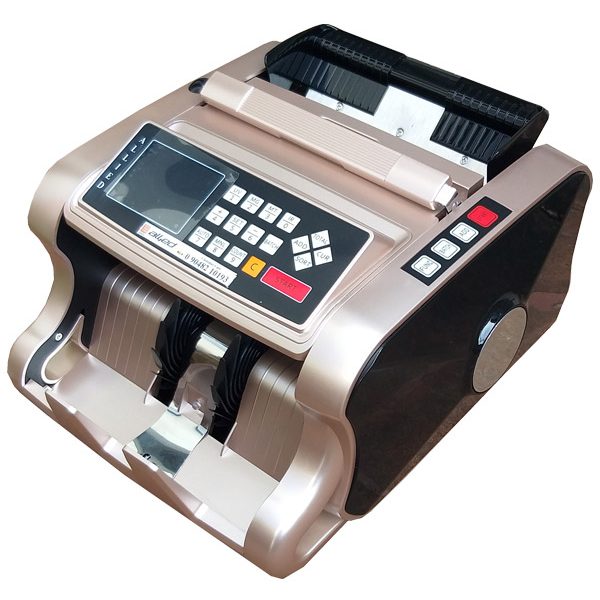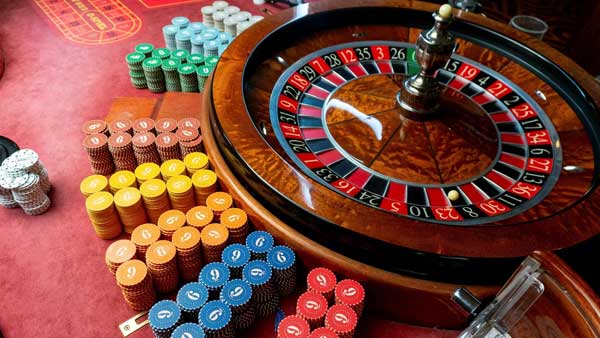
Money In Your Dreams: What Is It Telling You?
AlexJones
- 0
- 861
We all know what الات عد النقود is for; we all know we need it to survive; and we all know that we attach different priorities and importance to it. What we may not know is why we attach specific significance, motives or attitudes to it.
Before we can begin discussing what money represents in our dreams, we first need to understand what money actually is. This may seem simple and straightforward, but it’s anything but. Money can be defined in terms of economics, psychology, spirituality, philosophy or culture: The first two being the most useful for our purposes.
In the standard economic view, money is a purely utilitarian commodity that acts as a method of exchange, a unit of account, a measure of value and a standard of payment. Money arose as a convenient way to carry out business/trade. Economically speaking, money is simply the means to other ends. This view may be practical, but it fails to offer an understanding of the more psychological, emotional meaning of money.
In contrast to the stringent economic view, our capitalistic, consumer-driven society has become one that obsesses over money and instils it with meaning and importance. Money is revered, feared, worshipped, despised, lusted after and treated with a lopsided respect.
Money is a central motivation for many people. It’s a screen onto which almost any psychological issue can be, and usually is, projected. And it’s a source of all kinds of emotional, psychological, as well as financial, concerns.
There’s no question that money has an elevated level of prominence in our lives. It stands between us and starvation. It dictates our position and standing in the community, and it can destroy marriages, families and lives in general. Conflict over money is the number one cause of divorce. Individuals’ concerns about it can result in a wide array of problems including anxiety, depression, paranoia, impotence, impulse spending, gambling, hoarding, social isolation, theft, suicide and even murder.
According to the dictionary, money is, “something generally accepted as a medium of exchange,” but it also defines it as, “a measure of value,” and as, “of account.” This becomes a problem in so far as people value each other, and themselves, in terms of money, as persons of account, or of no account, based on income or net worth.
For all of its psychological importance and meaning, we don’t even have a good, working psychological definition of money to assist us in understanding it. However, attempts are being made. A new, and different (psychological) definition has been offered which is based on the fact that we all, to some degree, depend on others’ attitudes and behaviours toward us and how we think of and care for ourselves. These are essential ingredients of psychological well-being. It’s also based on the fact that all of us have irrational, unrealistic ideas about what money can do for us, to us, and to and for others. The cause of our concerns about money is largely a result of our views regarding the attitudes and behaviours of others toward us, as well as how we believe we’ll treat ourselves, depending on whether or not we have enough money.
Based on the above, the definition is as follows: Money, psychologically speaking, is our projection onto coins, bills, and other financial instruments, of our beliefs, hopes, fears and beliefs about how those things will affect who we are, what will happen to us and how we’ll be treated by others and by ourselves. This definition is based on six possible conditions:
An important question which this definition fails to address, or answer, is “What is enough, too much, or not enough?” The question of what’s enough has to be answered by posing another question, “Enough for what?” Answering this question can bring clarity and understanding of our motives, values, aspirations, etc.
Unlike Freud who identified money with feces and somehow made a connection of money to anal eroticism, this new definition makes money a symbol a response to our experience with our expectations of others, as well as our expectations of ourselves.
We dream of money in as many settings, situations and opportunities as it appears in waking life. However, the meaning of it in our dreams can be much less obvious or simple. Like waking life, though, the context in which money is present says a great deal about its implications. Is it a source of stress or conflict? Is it a means to an end? Is it a cause for celebration or joy? Does it inflict grief, pain, distress? Is it connected with a specific emotional response? Does it coincide with the appearance of a certain character or situation? Is money a current issue or concern in your life?
As with any element (image or symbol) in your dream, you need to analyze money in the context of the entire dream and in relation to your own personal connections and beliefs. When I was a kid, my parents told me, almost daily, that we weren’t made of money, that if it weren’t for bad luck we’d have no luck at all, and that we (our family) weren’t meant to be rich. These attitudes were engrained in my psyche.
The most distressing incident for me, related to money, occurred when I was just six years old. My mother bought me a new winter coat, which I adored and was very proud of. I spent a great deal of time admiring it (and myself) in front of the mirror. So when the opportunity arose for me to wear it to my relatives’ house, I was very excited –as six year olds get. As soon as I entered my relatives’ home, I did my little twirl to show everyone my new coat. When I was admonished and belittled for being spoiled and for having something that my cousins couldn’t have, the pride and joy immediately vanished. My aunt took it upon herself to inform me that she could buy all of her kids a coat and boots for what my mother paid for just my coat. I felt guilty, ashamed and embarrassed for being proud of my new coat (which I had nothing to do with purchasing). The guilt, shame and embarrassment stayed with me my entire life.

